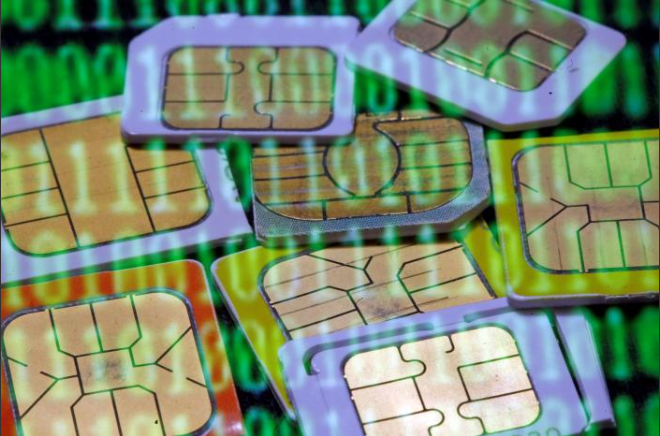
The House bill mandating the registration of subscriber identity module (SIM) cards to supposedly stop text scams received mixed reactions on social media.
The House of Representatives approved House Bill No. 14 on Monday, September 5.
Rep. Toby Tiangco (Navotas), chair of the House Committee on Information and Communications Technology panel, also approved the consolidation of this bill with similar other proposed measures that seek to require SIM card registration.
Of the 52 members of this committee, only Rep. Raoul Manuel (Kabataan Party-list) opposed the bill.
This House bill was different from the measure that former President Rodrigo Duterte vetoed before.
READ: Duterte vetoes bill seeking to tackle social media abuse
House Bill No. 14 was jointly filed by House Speaker Martin Romualdez (1st District, Leyte) and Senior Deputy Majority Leader Sandro Marcos (Ilocos Norte).
Should this bill be signed into law, authorized SIM card sellers and public telecommunications entities (PTE) will require those who intend to purchase SIM cards to register their names through a form.
PTEs are in charge of issuing the form. It will contain a subscriber’s personal details, including name, address, and an assigned mobile number.
Social media users were divided on their sentiments about this proposed measure.
Some Filipinos cheered the passage of the House bill.
“Big yes! Nakakainis na rin kasi yung laging napupuno ng spam at scam messages ang phone,” a Facebook user said.
“Okay lang yan basta may safety nets to protect the rights of the registrants,” another online user commented.
“Registering the SIM is the key to discouraging irresponsible people from abusing the use of the internet. This will do away with scams and fake news. It will put a stop to bullying,” a Facebook user expressed.
Other Filipinos argued that the proposed measure is prone to hacking and other data privacy risks.
“Telecom companies can scrub numbers that they can flag as scam BEFORE it gets to consumers. Mandatory SIM card registration is the wrong solution to this problem. They are just opening up a whole new set of problems i.e. privacy,” one Twitter user said.
“May safeguard na ba tayo against a data breach? Suki na kasi sa breach ung gobyerno,” another user tweeted.
Lawmakers’ explanations
Kabataan’s Manuel raised cybersecurity concerns as his reason for opposing the regulation of SIM cards in the country.
“While gusto natin na paghigpitin ang control sa SIM cards, pero nagre-rely din ito sa cybersecurity na meron ngayon ang ating bansa. Nandyan ang intention ng pag-limit at ma-monitor ang paggamit ng SIM cards,” Manuel said.
“Ngayon na hindi pa ganun kalakas ang cybersecurity mechanisms, ang takot natin ay magamit pa ito ng kung sinong may hawak ng ating information sa kanilang interes,” he added.
In his explanatory note, Romualdez said that it’s about time to regulate SIM cards in the country for accountability and prevention of crimes.
“The time has come to regulate the sale and distribution of SIM cards in order to promote end-user accountability, prevent the proliferation of mobile phone scams and data breaches, and to assist law enforcement agencies in resolving crimes involving the use of mobile phone units,” he said.
Concerns about infringement on freedom of speech and expression, privacy and safety were previously raised by some groups who opposed the vetoed SIM Card Registration Act.
Most of their criticisms were focused on the provision that covers social media content and accounts in the country.
READ: ‘Overkill’: Concerns on privacy risks raised over proposed SIM card registration Act
Malacañang said that this provision was what prompted Duterte to reject the passage of the SIM card registration act.









